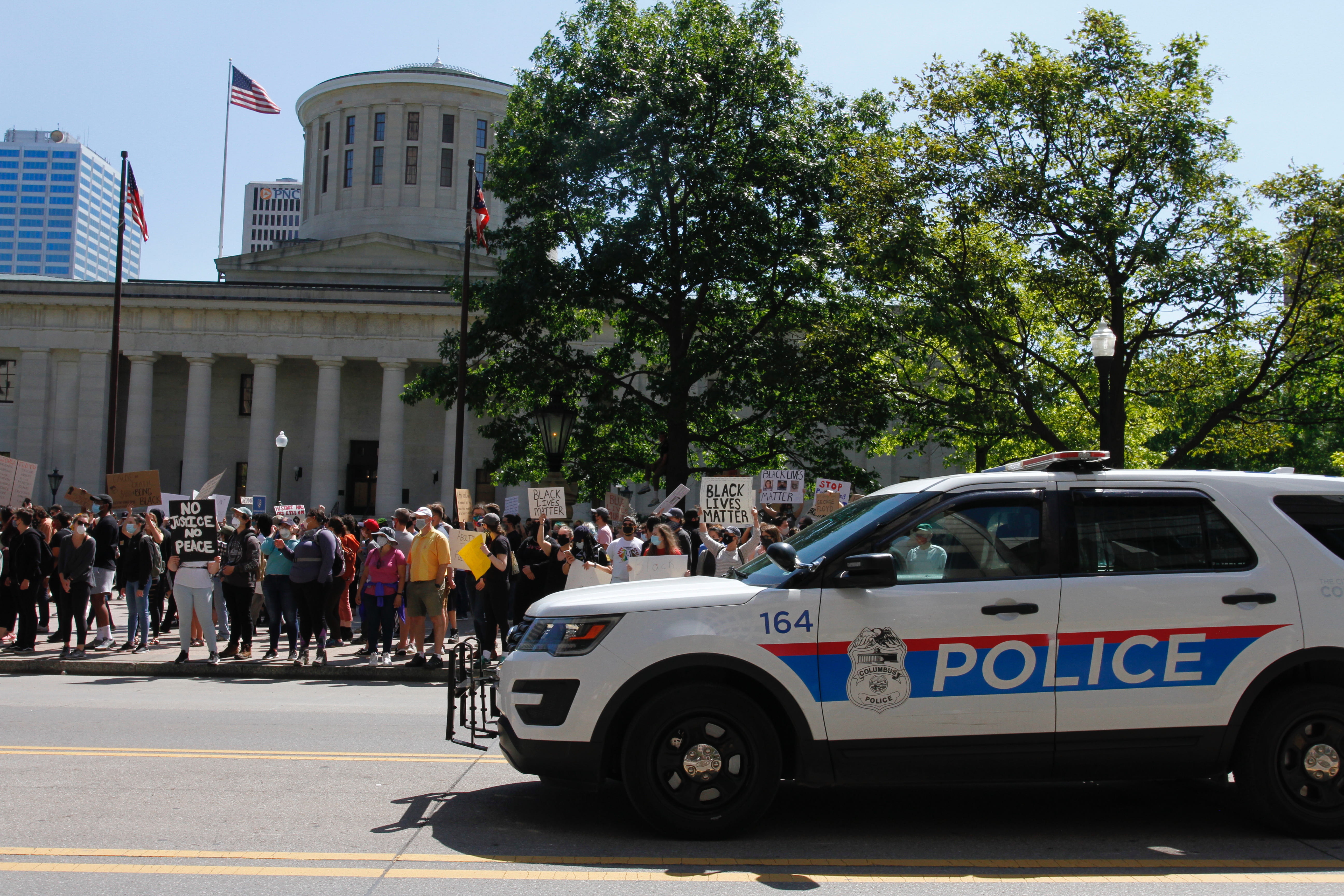
A grievance and motion for a restraining order were filed against the city of Columbus Friday after an independent investigator compelled six police officers to provide witness interviews in an investigation of potential criminal misconduct by officers during summer Black Lives Matter protests. Credit: Sarah Szilagy | Campus Editor
A grievance and motion for a restraining order were filed against the city of Columbus Friday after an independent investigator compelled six police officers to provide witness interviews in an investigation of potential criminal misconduct by officers during summer Black Lives Matter protests.
The motion for a restraining order cites violations of six sections of the Columbus Police union contract as well as provisions in the Ohio Constitution and was filed by lawyers representing the Fraternal Order of Police.
Nicole Wannemacher, a labor attorney for Fraternal Order of Police Capitol Valley Lodge No. 9, did not respond to request for comment at the time of publication.
The Columbus Department of Public Safety issued a statement Thursday on behalf of Richard Wozniak, a former FBI agent hired by the city in July to serve as an independent investigator, and Kathleen Garber, a former Franklin County assistant prosecutor hired by the city to be a special prosecutor.
Wozniak issued Garrity notices to six witness officers, requiring them to answer questions about if the officers under investigation — police Lt. Lowell Rector, police Sgts. Caroline Castro and Justin Coleman and officers Rufus Goodwin and Shannon Schmid — committed misconduct and are guilty of criminal wrongdoing, according to a press release from the Columbus Department of Public Safety. If the officers do not comply, they could face departmental charges of insubordination.
Mark Collins, the officer’s attorney, said in a press release that the city’s press release showed a lack of understanding of Garrity notices. He said requiring officers to give statements is a violation of the police union’s contract, Ohio law and the Ohio constitution.
Garrity rights protect public employees from incriminating themselves during investigative interviews conducted by their employees. Under the Fifth Amendment, employees cannot be compelled by the government to be a witness against themselves. The Fourteenth Amendment covers public employees of municipal, county and state governments under its equal protection clause.
“If an officer is given Garrity, they have to talk,” Collins said. “If they don’t, they can get fired for insubordination. They don’t have Fifth Amendment rights at that point, but the information can’t be used in criminal prosecutions.”
The city’s Thursday press release states the Garrity orders were necessary because “Wozniak has exhausted every other means of gaining cooperation from these officers (short of them being ordered to do so.)”
According to the Thursday press release, Wozniak contacted 60 officers identified as witnesses to potential criminal misconduct, 55 of whom declined to participate. Five agreed to be interviewed as long as they would not be criminally prosecuted.
“I suspect that they fear that if they cooperate, we will be able to identify more of the officers that are being investigated and they’re not wanting to provide that information,” Garber said.
Garber said if they are not able to do the interviews, then they will have to make decisions on the events based on the evidence available which excludes information from the witness officers.
“What that will mean is that there will likely be many officers who we suspect committed misconduct or misdemeanor crimes that we are not able to prosecute,” Garber said.
The investigators have published video clips with the goal of members of the public or fellow officers to provide information about the officers in the videos. The incidents occurred May 29, May 30 and June 1, 2020 during Black Lives Matter protests — including the June 1 pepper-spraying of Lantern staff.
In the city’s Thursday release, Garber said the focus of the investigation is accountability.
“No one is above the law. That includes law enforcement. If laws were broken, we will hold those responsible accountable,” Garber said. “It is concerning and disappointing that the people standing in the way of that accountability are fellow officers.”


